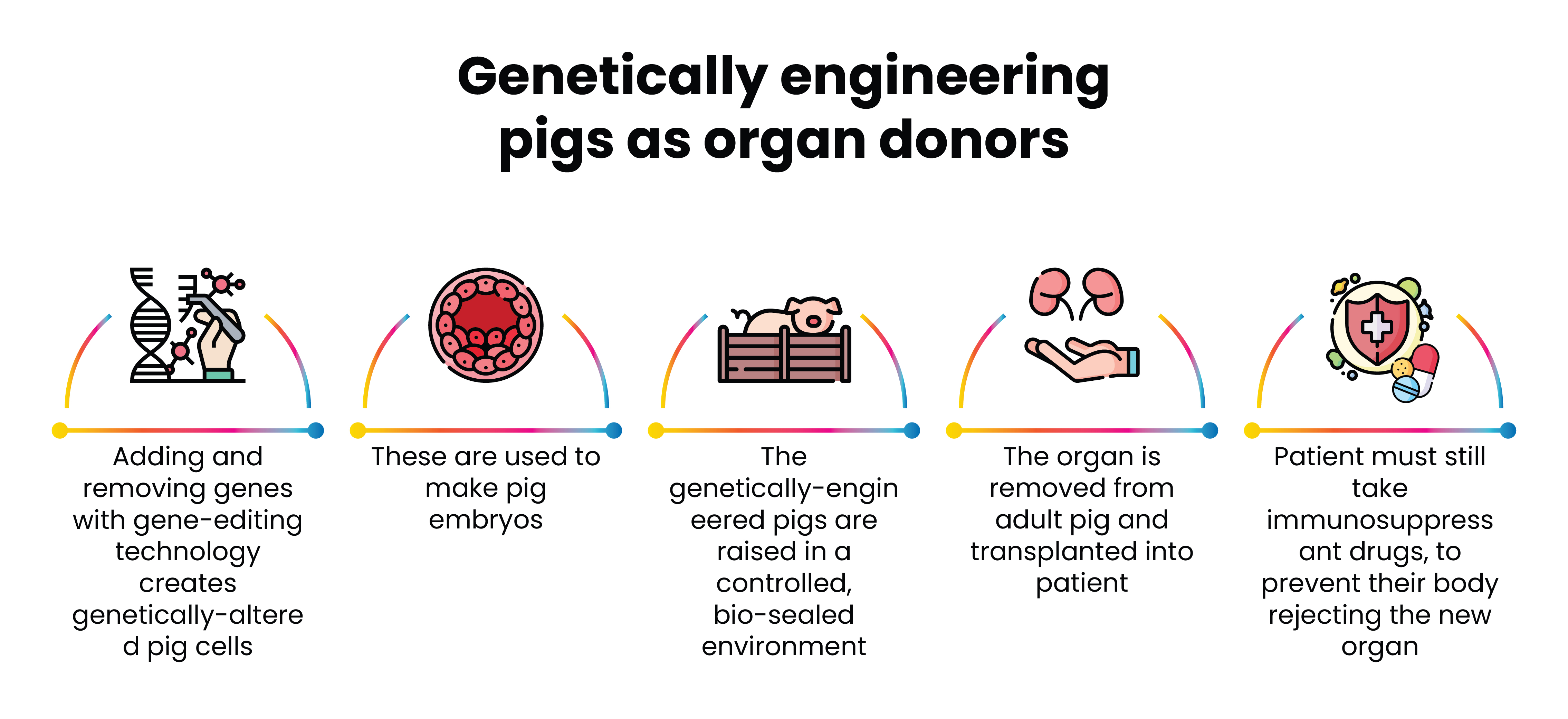Xenotransplantation is any procedure that involves transplantation, implantation, or infusion of live non-human animal cells, tissues, or organs into a human recipient.
- Need for such procedure was felt because of gap between number of transplantations needed by patients and availability of donor organs.
Why are Pigs often used for Xenotransplantation?
- Pig’s organ size, physiological metabolism and immune system are similar to those of human beings.
- Organs that can be used for xenotransplantation includes Heart, Liver, Lungs, etc.
- In 2022, the first xenotransplantation of a genetically-modified pig heart was done.
- Breeding pigs on farms is widespread and cost-effective.
- Varieties of pig breeds are farmed, providing an opportunity for harvested organs to be matched with specific needs of human recipient.
Process of Xenotransplantation
- Gene Editing Technology CRISPR-Cas9 was utilized to eliminate specific pig genes responsible for producing sugars triggering immune responses.
- It introduces specific human genes to enhance organ (kidney, heart) compatibility with humans.

Benefits of Xenotransplantation
- Alternative supply of organs to those with life-threatening diseases.
- Reduce shortage of transplantable organs.
Concerns
- High Organ rejection rate; Risk of infection from an animal organ; Animal welfare, etc.





